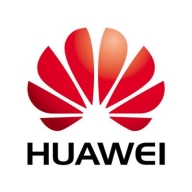

Aruba Wireless and Huawei Wireless are leaders in the wireless networking market, competing primarily in providing robust wireless solutions for large organizations. Based on feature richness and security emphasis, Aruba appears to have the upper hand, especially for organizations prioritizing advanced protection and network management.
Features: Aruba Wireless is known for its comprehensive ClearPass Access Management, robust firewall integration, and Adaptive Radio Management, ensuring top-notch security and network performance. Its AppRF system and master-local multi-site architecture further enhance its functionality. On the other hand, Huawei Wireless offers impressive performance and extensive coverage, providing a cost-effective and user-friendly solution catered towards large-capacity clients.
Room for Improvement: Aruba requires updates for platform stability, especially in new releases, and improvements in ClearPass documentation. There is also a demand for easier firmware downloading and enhanced heat mapping. Huawei could improve its after-sales support and system integration, particularly for SMBs, along with offering more competitive pricing against cheaper brands.
Ease of Deployment and Customer Service: Aruba offers flexibility with deployment across various cloud environments, including Public and Hybrid Cloud, which enhances versatility in IT infrastructures. Customer service feedback is mixed, with some users praising prompt support but others citing language barriers. Huawei's deployment is mostly on-premises with limited cloud options, and customer service experiences vary, with some users noting expertise but also suggesting improvements in accessibility and communication.
Pricing and ROI: Aruba is competitively priced, matching Cisco, but could reduce costs to increase its competitiveness. While appreciated for its long-term value, licensing complexities are noted. Huawei is seen as more cost-effective, offering flexible pricing and significant savings on initial and ongoing costs, but some users find its pricing higher than expected compared to competitors, which affects its market appeal.
| Product | Market Share (%) |
|---|---|
| Aruba Wireless | 13.9% |
| Huawei Wireless | 5.9% |
| Other | 80.2% |


| Company Size | Count |
|---|---|
| Small Business | 77 |
| Midsize Enterprise | 47 |
| Large Enterprise | 74 |
| Company Size | Count |
|---|---|
| Small Business | 17 |
| Midsize Enterprise | 8 |
| Large Enterprise | 12 |
Aruba Wireless is a secure, high-performance, multi-user wireless LAN supporting Wi-Fi 6. As workplaces and user expectations change, users can now maintain hybrid workplaces and IoT without compromising performance, reliability, or security. Aruba Wireless delivers better performance and capacity and greater AIOps visibility throughout all devices and users. In addition, through built-in network intelligence, network operations are made simpler while keeping everything secure through user and guest encryption.
Aruba Wireless, offered through Aruba Networks, is helping achieve digital transformation and IoT with seamless connectivity through multiple Wi-Fi access points. For the user’s convenience, Aruba Wireless provides indoor, outdoor, and remote access points to help boost faster and safer connectivity.
Choosing Aruba Wireless can help improve your organization’s user experience with wireless LAN in many ways, including:
Aruba Gateways and Controllers
Small organizations as well as large enterprises require excellent performance and security for cloud, mobility, and digital transformation. Therefore, in addition to the access points, Aruba Wireless also offers a variety of gateways and controllers, including:
Reviews from Real Users
Aruba Networks is aiding organizations in transforming to a hybrid work environment with Aruba Wireless. Users especially love its ability to work with many devices and its ability to group and manage access points.
A senior IT solutions architect at a manufacturing company says, "The most valuable feature is the fact that it can work with many devices. It supports everything that we need it to."
Gary F., a network administrator at wireless at Abilene Christian, notes, "I like the way it groups and manages access points."
We monitor all Wireless LAN reviews to prevent fraudulent reviews and keep review quality high. We do not post reviews by company employees or direct competitors. We validate each review for authenticity via cross-reference with LinkedIn, and personal follow-up with the reviewer when necessary.